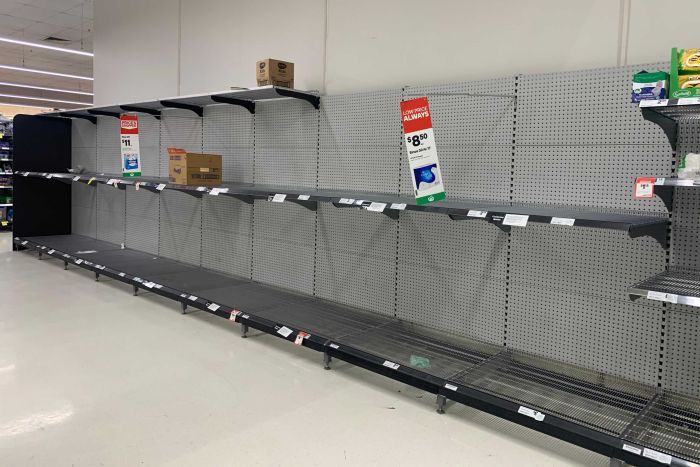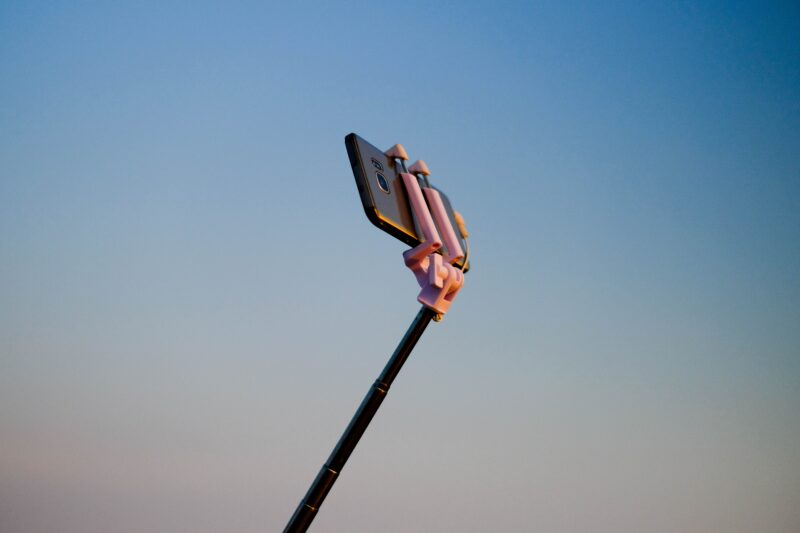Panic and opportunity
Oh, my God! What a crazy time we are living through. We are not quite facing a zombie invasion, but with the Australian bushfire chaos, then global virus fears, people may be starting to ponder “what next!?”
How will behaviours and businesses change?
“You will know the world is going to shit … when we start running out of toiletpaper.”
Annon
Just remember, this too shall pass. The message from the authorities has been clear, to take necessary precautions. Do not panic, but be precautious.
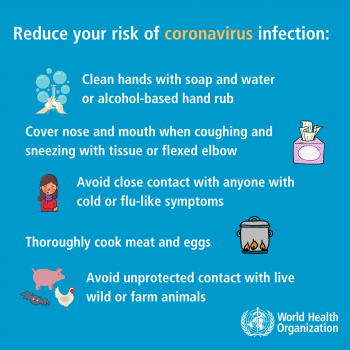
In uncertain times, people seek safety, and slow spending. Reports of restaurants in China Towns, and other dinning and retail precincts worldwide note sales dropping dramatically (More >). Sales are down, down, other than toilet paper and other grocery essentials. A concerning situation for many businesses big and small. How will they survive, and continue employing staff et cetera? Likely many businesses will not survive with an escalation over 2020.
Reports of supermarket shelves being left bare of essentials from toilet paper to pasta, baked beans, rice, and tins of tuna are alarming and befuddling for many (More >), yet many slow to bulk buy are being stimulated to reconsider. Watching the world go into quarantine and crisis mode has sent many into panic. Australian shoppers are hording as the Apocalypse nears.
With around 34% of our retail spending going to supermarket and grocery stores ($9.6 Billion in December 2019, ABS Statistics), the buoyant spending has received significant media coverage, as supermarkets run out of staples and local manufacturing of such products ramps the 24 hours shift to overdrive. Even with promises from the product manufacturers and experts saying “please remain calm” and that supplies will be maintained, a new social norm is being created. Do you have enough toilet paper in case of emergency?
Since 1999, Australian retail spending has grown by around 7% on average annually (148% over the 20 years). Supermarket spending has increased steadily by around 9% per annum (171% over the 20 years), compared with 14%pa for liquor retailing (278% over the 20 years), 11% for Pharmaceutical, cosmetic and toiletry goods retailing (228% over the 20 years), 11% for Cafes, restaurants and catering services (210% over the 20 years), 10% for Takeaway food (199% over the 20 years) and -1% for newspaper and book retailing (25% over the 20 years). These figures include online and offline spending. (More via 8501.0 – Retail Trade, Australia, Dec 2019).
It will be interesting to measure the impact of the Coronavirus on retail spending in Australia across different sectors. Will spending indicate people are cocooning in the safety of their homes, as they insulate themselves from perceived danger, instead of going out? With increasing investments on home extensions over recent decades and household wants becoming needs, we are more prepared than ever to cocoon ourselves at home. Big screen TV’s, Netflix, Stan, fast internet, gaming, shopping with a click and connected world, who needs to step outside? Especially with enough toilet paper and essentials to get us through.

Recent years have seen the rise of Uber Eats, Gaming and easy to binge streaming. A good weekend for many is to cocoon themselves at home, on the lounge. Only emerging Monday, to earn to pay the bills. With remote working also on the rise, for some, why leave home? Likely the Coronavirus will make cocooning in the safety of one’s home more and more common. When the world all seems scary, there’s no better place than home.
In recent years in seeking efficiencies and increased profitability banks have changed how they service customers and our supermarkets and other retailers are making self-serve the new norm. Banking from home is the new norm, and home delivery of the weekly groceries more common. Change is often more convenient, yet often uncomfortable for some, not always better, but pretty soon the new norm is the default, status quo. The good old days are soon gone, never to return.
It will be interesting to observe how the Coronavirus impacts our behaviours not only in the short term, but also well into the future. What new defaults and norms might be developed? What new business models will be created fit for our times and the future?
With the Coronavirus, people will become increasingly conscious of the cough in their workplace, at meetings, at local cafes and in shops. Suspicion may grow of those around. Those looking unwell, the zombies among us. It may be safer to stay away. In the comfort of our homes. New defaults will be set, cocooning will rise. Not better, but safer. People will do all they can to avoid any form of infection.
Human nature is to stick with habitual behaviours, or norms and defaults. Life is so busy, that we have entrenched habits, good and bad, that are hard to budge. Social norms and routines.
As chaos explodes, social proof creates new norms. Fear is a great motivator for change, as we seek safety. Social proof comes from the psychological tendency for people to seek conformity to ensure they behave in a socially acceptable manner. It makes people feel confident, a sense of belonging and sharing commonality. When people are not sure how to behave in a given situation, social proof guides the way from the information and behaviours of others.
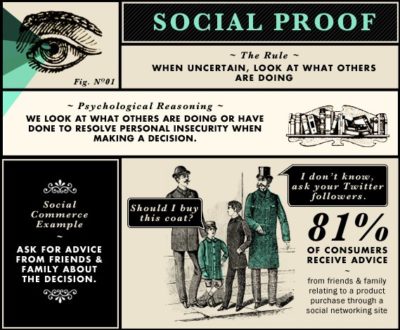
As the media (social and news) spreads the behaviour of others, the information cascades throughout our community as the new norm. From one to many, and fear of missing out or making the wrong decision starts to escalate. Are you prepared for a state of quarantine?
People start to look into the situation, and what they should do. Confirmation bias means they seek the information that confirms their fears, and they deflect counter perspectives. Their fears grow. The evidence from lock downs worldwide and empty supermarket shelves confirm that we need to prepare for the worst, so everyone gradually follows the herd, rational or not. At a fundamental base level people seek safety and that their physiological basic needs are protected. They seek to protect themselves, their family and friends.
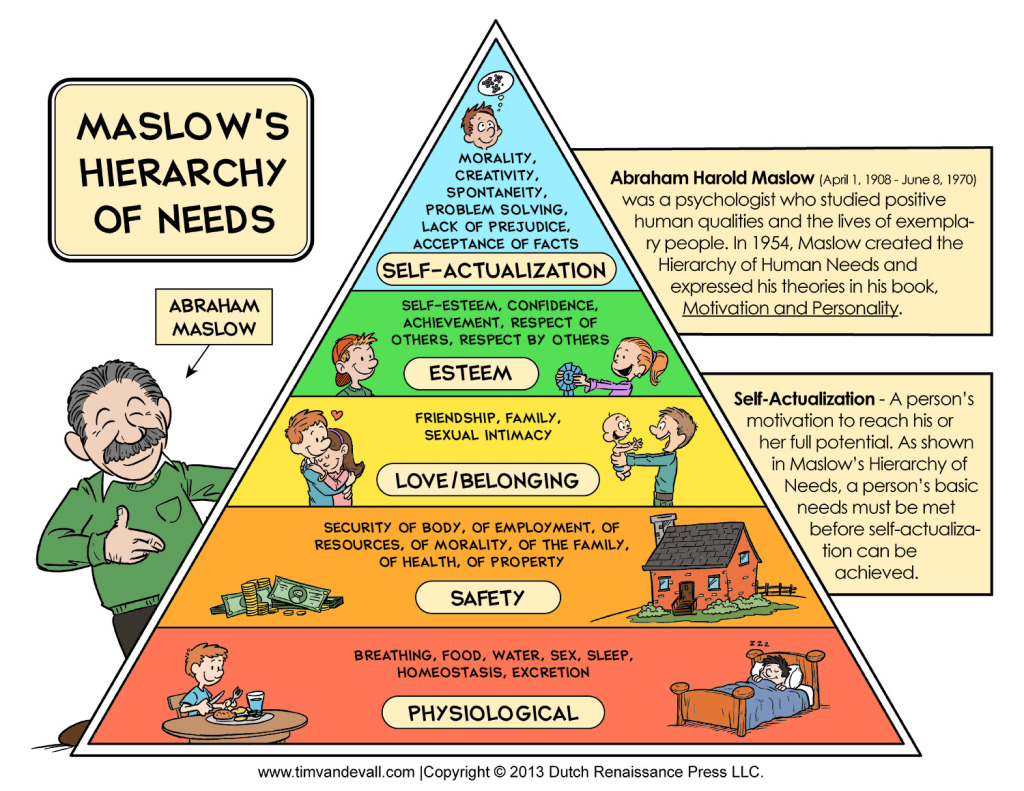
It is challenging to ignore the approaching danger when everyone is running in the opposite direction. Fear can be rational and not, but either way warnings are raised …
- Identifiable and rational fear of impending danger; or
- Anxieties from unable to be easily identified irrational stimulus.
Many of our fears keep us safe from harm. If we cross a busy freeway without a safe pedestrian crossing we will be very careful, as we fear being hit by a car. We avoid catching a virus from others, especially when the warning signs are increasing and the death toll grows. These are quite rational fears cautioning us of DANGER. Often the best way to overcome fear is with facing it and doing research with an open mind that clarifies the reality of the situation. Yet, human nature is to simply seek information that confirms one’s fears. The media is essential communicator, yet needs to not ignite fear unnecessarily.
Behavioural economics determines strategies to overcome or exaggerate irrationality. Many of the heuristics associate with behavioural economics are driving fear around the Coronavirus.
Messenger: We are heavily influenced by who communicates information.
Norms: We are strongly influenced by what others do.
Defaults: We ‘go with the flow’ of pre-set options.
Salience: Our attention is drawn to what is novel and seems relevant to us.
Priming: Our acts are often influenced by sub-conscious cues.
Affect: Our emotional associations can powerfully shape our actions.
In the case of the Coronavirus, information from the World Health Organisation has advised caution to protect themselves and others, DO NOT PANIC!!! Most of the precautions are quite rational and relate well to common preventative health messages.

It is interesting to observe changes in attitudes and behaviours as a result of the Coronavirus. Other than the rush on toilet paper and other grocery essentials, we are being asked to avoid or minimise hand shaking, cheek kissing and ensure hands are washed regularly (More >).
“Say no to a handshake, give up high fives, refuse kisses on the cheek and definitely avoid hugging. All around the world people are changing their daily habits at work and at home to reduce the risk of contracting the coronavirus and prevent it from spreading.”
THE GUARDIAN
Humans are generally somewhat apathetic, yet in such a situation as impending pandemic, new default behaviours start to change. We seek to do the right thing and safety. The Coronavirus is having a major motivational impact on our norms and defaults. It will be interesting if any of our changes in behaviours are more permanent.
For example, do hand shakes and cheek kisses for work colleagues start to fade away? Does hand washing and sanitising increase and become entrenched? At a wider level, do habitual behaviours such as visiting bricks and mortar shops and restaurant areas drop in the short term, then more permanently? Do people stop traveling as much into the future, or start to do so more locally? Do face masks become more common once the Coronavirus has passed?
Some technology will have a stronger use case from the Coronavirus. Technology to minimise human contact in a medical situation and drones to deliver products. New defaults and pathways will be likely set. The early adopters will be followed by others. The case for new tech will build, norms will be set. Old norms will be replaced with new social defaults.
Likely we will look back in a few years, with vague memories of the old.The world and the humans within it tend to evolve relatively slowly over time, yet when we are faced with such unprecedented chaos, we are injected with a steroid sized dose of motivation to change. It is critical to not panic in order to preserve the aspects of our culture and society we value.
How will our businesses big and small and governments respond in the short to longer term? There is likely a critical gap in research as to how to best overcome the irrational fears of the community. How can businesses survive and grow in a seeming zombie apocalypse? The recently announced Federal Government stimulus package will likely provide some support. Yet, how can businesses continue to attract sufficient sales as the impact of the Coronavirus continues? When customers stay away, how can businesses get them back?
Following the major negative impact for many Australian businesses from the bushfires, the Coronavirus is adding to the stress and uncertainty. Many businesses have faced disruption and changing times in recent years, and are now being placed under exponential pressure, well beyond their control. Simply waiting for the good times to return is a sad case of the ostrich effect – burying their heads in the sand to avoid danger.
Business and government are being forced to re-think and re-engineer what they do. The businesses that will prosper will likely be those with the best understanding of the new world, monitoring and evolving with cultural, technology and industry needs and trends, and implementing new business models fit for our times and the future. Fear declines as confidence grows. It will be exciting to see how our economy evolves in the coming decade!
